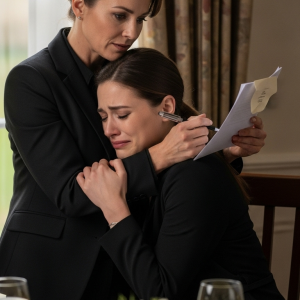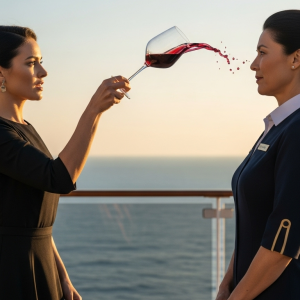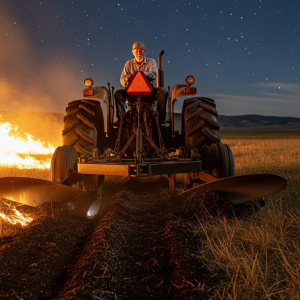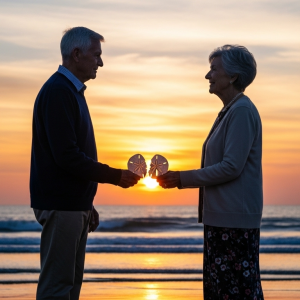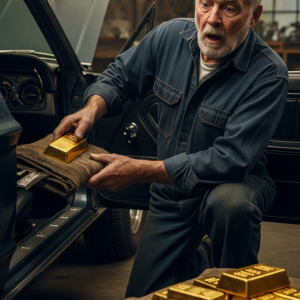My family are the most colorist people I have ever met. Growing up in a Hispanic household, the shade of your skin was, in my mother’s eyes, the ultimate measure of your worth. Every summer, when my older sister Elena and I would play outside, my mother would count the number of times we stepped out of the shade. Each infraction was equal to one hard slap across the face when we got home.
For years, our morning routine was a ritual of self-hatred. It consisted of our mother rubbing cheap, acrid-smelling skin whitener from the Dollar Tree all over our bodies. The whiter we looked, the better she treated us. I remember just wanting to be a normal kid, to play in the sun without fear, to love the skin I was in. But my sister, Elena, she became a whitewashed queen. She embraced our mother’s ideology with a terrifying fervor. Every night, she would set an alarm for every two hours to disrupt her sleep, believing that constant exhaustion would naturally make her look more pale. What on earth? Instead of being concerned for her health, our parents treated her like royalty for this self-destructive devotion. They showered her with beautiful dresses and expensive jewelry, rewarding her for erasing herself.
It soon became clear who the golden child was. If I wanted their love, I had to follow Elena’s path. But I was desperate to find other ways. I got straight A’s, cleaned the house from top to bottom, even gave my parents foot massages, all in a desperate bid for an ounce of their approval. “Thanks, honey,” they’d always say, their praise a backhanded slap, “but I really wish you worked this hard on getting beautiful, pale skin like your sister.”
For my sixteenth birthday, they got me a literal bleaching product for my hair, shipped from overseas. I spent the entire day crying into a teddy bear in my room. That’s when my sister came in. I thought, for a fleeting moment, she might comfort me, tell me I was beautiful as I was. But no. She hugged me and whispered, “Ila, I love you, and I want to help you. Look at me.” I stared at her malnourished frame, the dark circles under her eyes, the chemical burns on her scalp from years of straightening her natural curls. “If I can look this beautiful,” she said, her eyes shining with a frightening sincerity, “so can you.”
From then on, I surrendered, but only on the surface. I started wearing foundation that was two shades too light and always found a way to cover the rest of my body. Not because I hated my brown skin or my natural hair, but simply because it would make my parents happier. And I was still a child who craved her parents’ love.
Six years later, I had just graduated from the University of Florida. When last Thanksgiving came around, I was feeling good. I had taken up running, spending so much time outside that I was forced to embrace my natural skin tone, my natural beauty. And I loved it. My boyfriend, Carlos, loved it too. He was half Puerto Rican, half Italian, and very familiar with the poison of internalized racism. But he was also white-passing, so I held onto a naive hope that everything with my parents would be okay.
That hope died the moment the front door opened. I showed up at my parents’ house with Carlos holding my hand, having even put on a slightly lighter foundation to lessen the blow. A woman who looked like a ghost of my sister opened the door. She was deathly pale, extremely skinny, and her eyes were hollow. My heart broke for her. And I guess hers did too, because as soon as she saw us, she cried out, her voice a horrified shriek. “Dios mío! What are you doing to our bloodline?”
Carlos instantly squeezed my hand, a silent promise: It’s okay. We got this. My mother rushed to the door, her face a mask of fury. “My love, what have you done to yourself?” she screamed, trying to undo my slicked-back bun, her fingers clawing at my hair as if to straighten it by force. That’s when she saw Carlos. Her mouth opened so wide I thought her jaw would snap. “Ah,” she said, letting out a forced, hysterical chuckle. “You almost had me believing this… person… was actually your boyfriend. But I understand. You’re young, just messing around.”
My dad then grabbed my hand to pull me inside, and immediately handed my sister a tube of skin whitening cream to put on my face. Except this wasn’t the same stuff from when I was a child. This was different. This one burned.
“Stop! Get away from me!” I yelled, tears of pain and humiliation streaming down my face. Within seconds, angry red blisters erupted across my cheeks. My skin felt like it was peeling off. As I screamed, Carlos was already calling for an ambulance. I figured, surely, my parents would realize what they had done. But no. My dad tried to wrestle the phone away from Carlos, shouting, “Pain is beauty! She will be beautiful!”
Luckily, the paramedics arrived. By the time they were treating me, my eyebrows had been burned off. The next morning, I woke up in a hospital bed, my face swathed in bandages. The first thing I saw was Carlos, kissing my hand, telling me I was beautiful. The first thing I heard, when I checked my phone, was a barrage of voicemails from my family. The first was angry. The second was threatening. By the tenth, my sister was begging me not to press charges. “They’re our parents,” she said, her voice hollow and defeated. “They just want what’s best for us. Please, come home.”
Carlos sat with me, his face grim. “Ila,” he said quietly, “this isn’t normal. What they did to you is abuse. It’s always been abuse.” He was right. All these years, I had been trying to earn a love that should have been unconditional. I had normalized their cruelty. The hospital social worker helped me file a police report. I was terrified, my hands shaking so badly I could barely sign the paperwork. Officer Ramirez, the cop who took my statement, had sad eyes, like he’d seen this a thousand times before. “You’re doing the right thing,” he told me.
I was discharged after three days, looking like a mummy from a low-budget horror movie. We went straight to Carlos’s tiny apartment. That night, I had a complete breakdown, and he just held me, letting me cry it all out. The police spoke with my parents, who, of course, claimed it was all a misunderstanding, that I’d had an “allergic reaction to a normal beauty product.” My sister, still trapped in their house, supported their version of events, texting me that they were saying I was mentally unstable and had always made up stories for attention.
I was losing hope. My parents were masters of manipulation, and I had no hard evidence of the years of past abuse. Then, a text came from a number I didn’t recognize. ‘This is Jasmine from college. I have pictures from freshman year when you still had those chemical burns on your neck from home. Let me know if they would help.’ I had completely forgotten. She sent them over immediately.
A week after the assault, a victim advocate from the District Attorney’s office, a woman named Danielle, called. She said the hospital’s chemical analysis of the cream was damning. “The substance on your face contained hydroquinone at levels far exceeding legal limits, plus mercury compounds that are banned in the US,” she explained. What surprised me was her next statement. “We also have a statement from your sister.” My heart stopped. “Not exactly,” Danielle clarified. “She’s supporting their version of events. She says you’re making it all up for attention.”
I hung up and threw my phone across the room. I was so tired of crying, so tired of being hurt. That night, I decided to try something different. I called Elena directly. She answered, her voice a hushed whisper. “Ila, you need to drop this. They’re really angry. Dad broke the coffee table yesterday.”
“Elena, they are still hurting you,” I pleaded. “Look at yourself. When was the last time you slept through the night?”
She was quiet for so long I thought she’d hung up. Then she whispered, “I don’t know how to be any other way.”“Neither did I,” I told her. “But I’m learning. You can, too.” She hung up.
A few days later, my Aunt Rosa, my mom’s sister from Miami, called. My mother had already reached out to her, spinning her web of lies. “I know,” Aunt Rosa said, her voice firm, cutting me off before I could even start to explain. “I’ve always known, Ila. I suspected. I should have done more.” Then she told me something that changed everything. “When your mother and I were growing up, our grandmother did the same things to her. I found your mother’s old diaries. The skin bleaching, the obsession with looking more European… it was done to her, too.”
This revelation didn’t excuse what my mother had done, but it helped me understand the deep, generational roots of this poison. The cycle of abuse had started long before I was born.
A few days after that, as I was leaving a follow-up appointment at the dermatologist, I saw a familiar, painfully thin figure leaning against a car in the parking lot. It was Elena. She had followed my mother’s car to find out where my appointment was. She looked over her shoulder anxiously. “I don’t have long. They know I took the drive,” she whispered, pressing a small USB drive into my hand. “It’s their financial records. They’ve been ordering that skin bleach from overseas for years. It’s all there.” She turned to leave, then called over her shoulder, “I’ll try to come to your place tomorrow. Text me the address.”
As we watched her hurry away, Carlos squeezed my hand. “She’s stronger than she thinks.”
“We both are,” I replied.
The next evening, there was a soft knock on the door. It was Elena, a small backpack clutched to her chest. “They know,” she said as soon as she was inside. “Dad was looking for the drive. I left while they were fighting.” I hugged her, and this time, she didn’t pull away. She felt as fragile as a bird. “You’re safe now,” I told her, though I wasn’t entirely sure that was true.
Carlos made quesadillas while I helped Elena settle onto an air mattress in the corner of the living room. It was a simple setup, but she looked at it like it was a luxury hotel. When she came out of the shower, wearing one of Carlos’s t-shirts that hung like a dress on her thin frame, I saw fresh bruises on her arms. “Dad grabbed me,” she said, her voice matter-of-fact, as if commenting on the weather. I took pictures. More evidence.
With Elena’s testimony and the financial records, the DA’s office now had a much stronger case. They added charges of child abuse, endangerment, and importing illegal substances. A few days later, our parents were arrested. It should have felt like a victory, but instead, I just felt hollow. Elena, however, burst into tears of pure, unadulterated relief. “It’s really over,” she kept saying. “They can’t make me go back.”
The next few weeks were a blur of legal meetings and therapy appointments. Our parents were eventually released on bail with strict orders not to contact us, orders they violated almost immediately with emails from new accounts and messages sent through friends. But we documented every violation.
The trial was set for March. Christmas came and went, the first I had ever spent away from my parents. Carlos’s family invited us to their celebration. His mother, a warm, wonderful woman, treated us like her own daughters. Elena ate more that day than I had seen her eat in years.
In January, we got noticed that the trial was set for March. As the date approached, my anxiety skyrocketed. Elena threw herself into painting, creating dark, swirling images that somehow captured exactly how I was feeling. The night before the trial, Carlos cooked us a special dinner. “No matter what happens tomorrow,” he said, raising his glass, “you two are the bravest people I know. We’ll face it together.”
I walked into that courtroom feeling like I might throw up. My parents were already seated, my mother in a modest dress, trying to look like a victim. She testified first, talking about her love for her daughters, how she only wanted them to have the best opportunities in life. “In our culture, lighter skin opens doors,” she said with a sad smile. “Beauty requires sacrifice.” The whole courtroom went silent. It was as if she had finally admitted her entire, twisted philosophy out loud.
My father’s testimony was no better. He played the part of the strict but loving father, but couldn’t explain away the photos of my chemical burns or Elena’s bruises. Their lawyer tried to paint me as a rebellious, jealous daughter. “Isn’t it true you’ve always been jealous of your sister’s natural beauty?” he asked me.
“No,” I said, my voice clear and steady. “I’ve always been jealous that she was willing to destroy herself to earn our parents’ love, and I wasn’t.”
Elena’s testimony was the most powerful. She was so thin and fragile on the stand, but her voice grew stronger as she spoke. She talked about the sleep deprivation, the starvation, the constant pressure. “I thought it was normal,” she said. “I thought all parents treated their children this way. It wasn’t until I saw how Ila was healing that I realized what they were doing to us was wrong.”
The trial lasted three days. On the final day, the judge delivered his verdict. “I find the defendants guilty on all counts,” he announced. I burst into tears, not of sadness, but of pure relief. They were sentenced to three years in prison, with the possibility of parole after eighteen months.
Life went on. I graduated with my degree in psychology, inspired by my own experiences to help others. Elena started taking classes at the community college, focusing on art therapy. Carlos and I got more serious. He proposed on my birthday, a year after the Thanksgiving assault. I said yes immediately.
Two years after the trial, our parents were released on parole. We received a notification, but they never tried to contact us. According to Aunt Rosa, they had moved to a different part of the state. My mother had written a few letters, full of apologies mixed with excuses. I wrote back once, a short note saying I was okay, but not ready for more. Elena never responded.
Three years after the trial, Carlos and I got married in a small ceremony in a local park. Elena was my maid of honor, looking healthy and beautiful, her hair in loose curls down her back. I wore my own hair in its natural curls, the scars on my face still visible if you looked closely, but I didn’t try to hide them. They were part of my story. As Carlos and I swayed on the dance floor, I looked around at the life we had built. It wasn’t perfect. But it was real, and honest, and ours.
